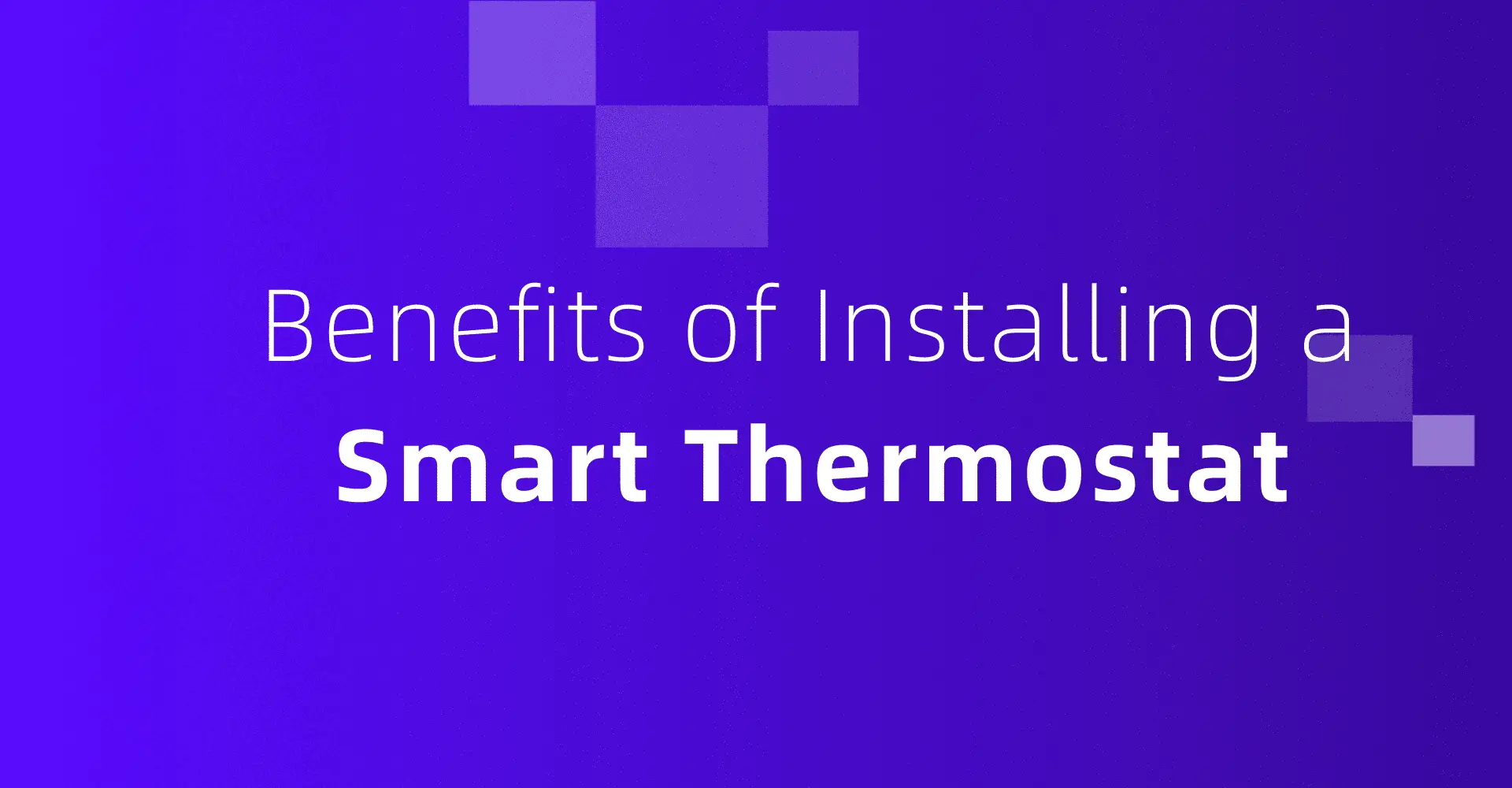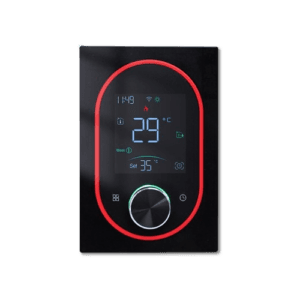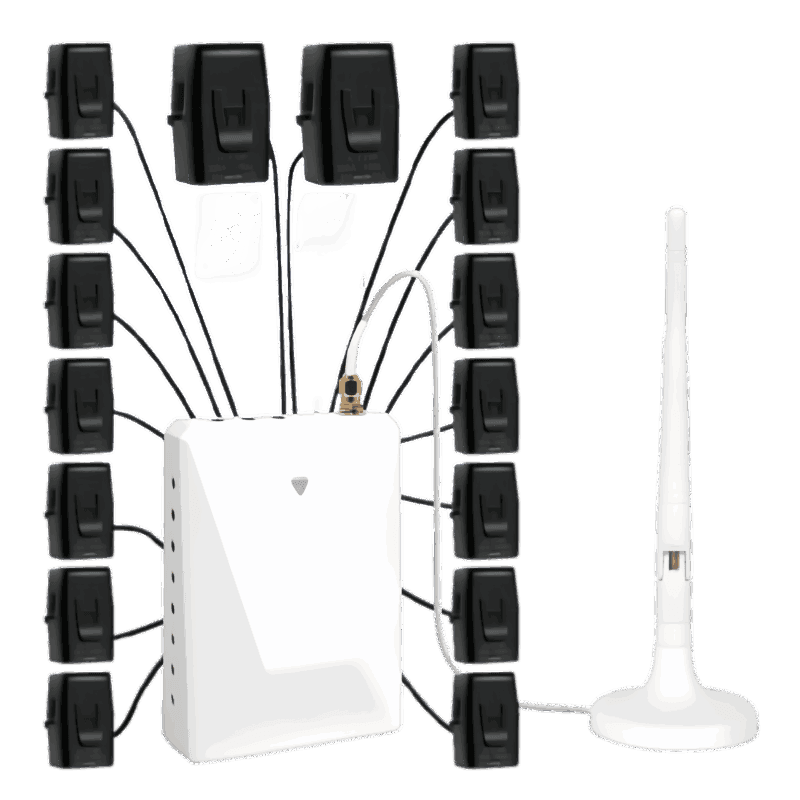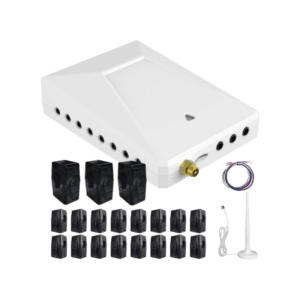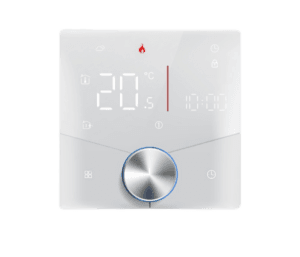In today’s connected world, energy management has moved far beyond simple programmable thermostats. Smart thermostats bring automation, AI learning, and real-time control to your home’s heating and cooling system.
Whether you want to save money, improve comfort, or reduce your environmental impact, a smart thermostat is one of the easiest and smartest upgrades you can make.
In this blog, we’ll explore:
✅ What a smart thermostat is
✅ Top 10 benefits of installing one
✅ How it helps optimize home energy management
1. What is a Smart Thermostat?
A smart thermostat connects to your home’s Wi-Fi network and allows you to control your heating and cooling system remotely.
Unlike traditional programmable thermostats, smart models:
- Learn your habits and adjust automatically
- Integrate with smart home systems like Alexa, Google Home, SmartThings
- Optimize energy use based on real-time data and weather conditions
📱 Control your thermostat from anywhere — whether you’re on the couch or on vacation!
2. Top 10 Benefits of Installing a Smart Thermostat
Let's dive into the many ways a smart thermostat can transform your home energy experience:

Benefit 1: Significant Energy Savings
A properly installed smart thermostat can reduce your heating and cooling bills by up to 15–30% annually.
- Automatically adjusts temperatures when you’re sleeping or away.
- Reduces unnecessary heating/cooling without sacrificing comfort.
🔹 EPA’s ENERGY STAR program estimates homeowners save about 50–150 per year with smart thermostats.
Benefit 2: Remote Control Anytime, Anywhere
Use your smartphone, tablet, or voice commands to:
- Change temperature settings
- Switch modes (cooling/heating/fan)
- Adjust schedules while traveling
✅ No more wasting energy because you forgot to adjust the thermostat before leaving!
Benefit 3: Learning Your Habits Automatically
Many smart thermostats learn:
- When you typically leave home
- When you come back
- Your preferred temperatures
Over time, they create an automatic schedule customized to your lifestyle without you lifting a finger.
Benefit 4: Integration with Other Smart Devices
Modern smart thermostats work seamlessly with:
- Smart speakers (Amazon Alexa, Google Assistant, Apple HomeKit)
- Smart lighting systems
- Smart home hubs like SmartThings
📌 Example: Automatically reduce HVAC when smart door sensors detect you left the house!
Benefit 5: Energy Usage Reports
Access detailed reports showing:
- Daily, weekly, and monthly energy consumption
- Suggestions for improving efficiency
- Estimated savings compared to standard usage
🔍 Track and optimize your home’s heating and cooling like never before.
Benefit 6: Geofencing for Smarter Automation
📱 Smart thermostats can use your smartphone's location to determine:
- When you leave home → Automatically adjust to an energy-saving mode.
- When you’re coming back → Pre-warm or pre-cool your home before you arrive.
🔹 No manual scheduling required — your home's climate adapts to your lifestyle automatically.
Benefit 7: Zoned Temperature Control
If your HVAC system supports it, a smart thermostat can:
- Control different rooms or floors independently.
- Focus heating/cooling on rooms you actually use.
- Avoid wasting energy on empty areas.
✅ More comfort + more savings.
Benefit 8: Compatibility with Renewable Energy Systems
Smart thermostats can integrate with:
- Solar PV systems to prioritize heating/cooling when solar production is high.
- Battery storage systems to optimize consumption during peak utility hours.
📈 Maximize your investment in renewables and smart energy systems.
Benefit 9: Reduced Carbon Footprint
Using less energy directly translates to:
- Lower greenhouse gas emissions.
- Helping utilities avoid additional fossil fuel generation.
- Contributing to a cleaner, more sustainable grid.
🌎 A smart thermostat is a small upgrade with a big environmental impact.
Benefit 10: Increased Home Value
Installing a smart thermostat can:
- Increase your home's appeal to tech-savvy buyers.
- Qualify your home for "Smart Home" real estate listings.
- Offer instant ROI by lowering monthly utility costs — an attractive bonus for potential buyers.
🔹 Smart homes sell faster and often at a premium!
Real-World Example: Smart Energy Optimization
Let’s say you install a Grus Smart Thermostat and pair it with a Grus WattPanel-2X:
✅ Your smart thermostat automatically learns that your home is empty from 9 AM to 5 PM every weekday.
✅ It sets back the temperature to energy-saving levels during those hours.
✅ Meanwhile, the Grus energy monitor detects when your solar panels overproduce midday and signals your thermostat to pre-cool the house using free solar power.
✅ Result: Lower electric bills, greater comfort, and smarter renewable energy usage.
--- title: "Smart Thermostat and Smart Meter Synergy" --- flowchart TD A["Grus Smart Energy Monitor"] --> B["Detects Energy Production and Usage"] A --> C["Signals Smart Thermostat"] C --> D["Optimize HVAC Runtime Based on Solar Availability"] D --> E["Reduce Grid Consumption and Save Money"]
Now that we’ve explored the major benefits, let’s talk about how to choose the right smart thermostat for your home and some top models for 2025.
** How to Choose the Right Smart Thermostat for Your Home**
1 Confirm HVAC System Compatibility
Before buying, check your heating and cooling system type:
- Single-stage or multi-stage?
- Heat pump with auxiliary heat?
- Zoned systems?
- High-voltage baseboard heating?
📌 Tip: Some smart thermostats (like Grus EcoNet series) are designed to support more complex HVAC configurations including multi-stage systems and radiant floor heating.
2 Key Features to Look For
| Feature | Importance | Notes |
|---|---|---|
| Wi-Fi Connectivity | ⭐⭐⭐⭐⭐ | Control from anywhere via app |
| Learning Capability | ⭐⭐⭐⭐ | Auto-schedule based on usage patterns |
| Energy Reports | ⭐⭐⭐⭐ | Monitor and optimize consumption |
| Smart Home Integration | ⭐⭐⭐⭐ | Works with Alexa, Google, SmartThings |
| Remote Sensors | ⭐⭐⭐ | More precise room-by-room control |
| Geofencing | ⭐⭐⭐ | Automatic away/home modes based on your location |
| Demand Response Support | ⭐⭐ | Some thermostats work with utilities to lower peak demand |
✅ Prioritize features based on your lifestyle and energy-saving goals.
Top Smart Thermostat Recommendations for 2025
1 Grus EcoNet-TU Smart Thermostat
- Best for: Heat pumps, single-stage HVAC, homes with solar systems.
- Key features:
- AI-driven learning
- Solar and battery system optimization
- Supports SmartThings, Alexa, and Google Home integration
- Real-time mobile app control
2 Grus EcoNet-BH Smart Baseboard Thermostat
- Best for: High-voltage electric baseboard heating systems.
- Key features:
- Precision temperature control
- Energy usage reports
- Schedule and remote control via mobile app
- Geofencing support
3 Grus EcoNet-RV Smart Thermostatic Radiator Valve
- Best for: Hydronic radiator systems (common in older homes and apartments).
- Key features:
- Room-by-room temperature zoning
- Smart schedules and automation
- Energy savings up to 20% per room
** Installation Tips for Smart Thermostats**
✅ Preparation:
- Turn off power to your HVAC system before installing.
- Label your thermostat wires carefully.
- Ensure your system has a C-wire (common wire) if needed.
✅ App Setup:
- Download the corresponding mobile app.
- Follow the step-by-step wizard for Wi-Fi pairing.
- Set initial schedules and connect to smart home platforms.
✅ Professional Installation:
If you're unsure about wiring or have a complicated HVAC setup, consider hiring a certified installer.
Conclusion: A Smart Thermostat is a Smart Investment
Installing a smart thermostat delivers huge benefits in comfort, savings, and sustainability.
✅ Save 15–30% annually on your energy bills.
✅ Automate your home's heating and cooling based on your life, not rigid schedules.
✅ Control and monitor your home's environment from anywhere.
✅ Make your home smarter, greener, and more future-ready.
🚀 Ready to make the switch?
👉 Explore Grus Smart Thermostats Here and take control of your comfort and energy costs today!
